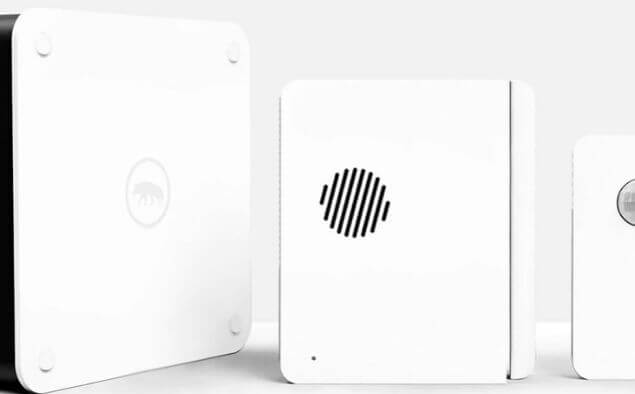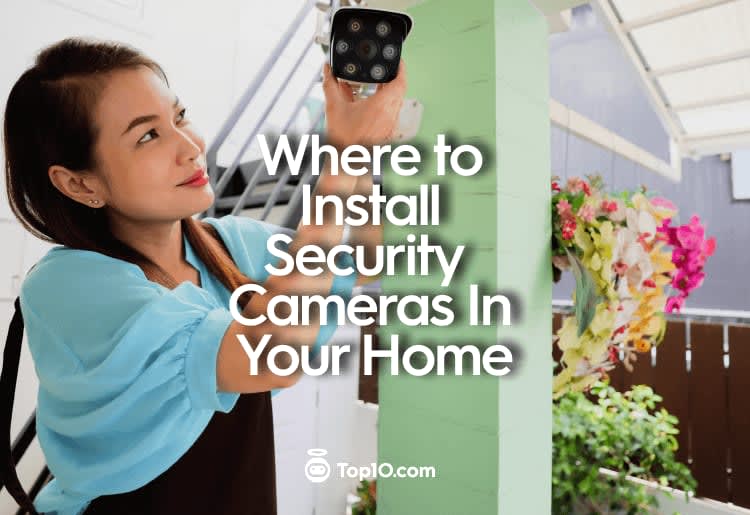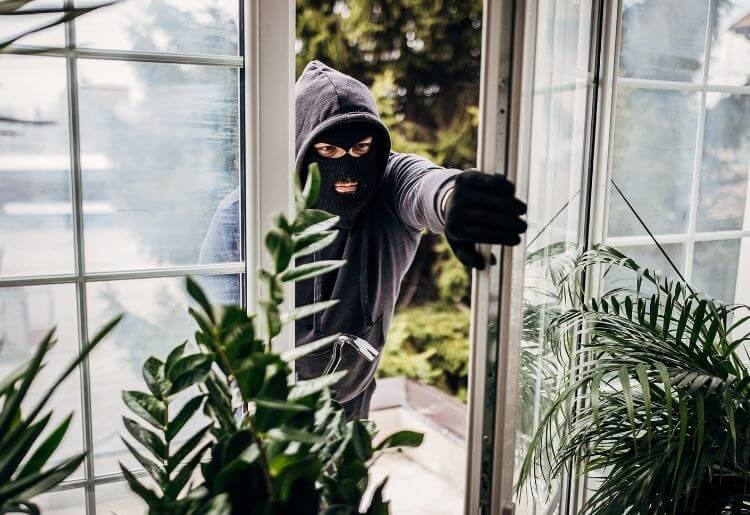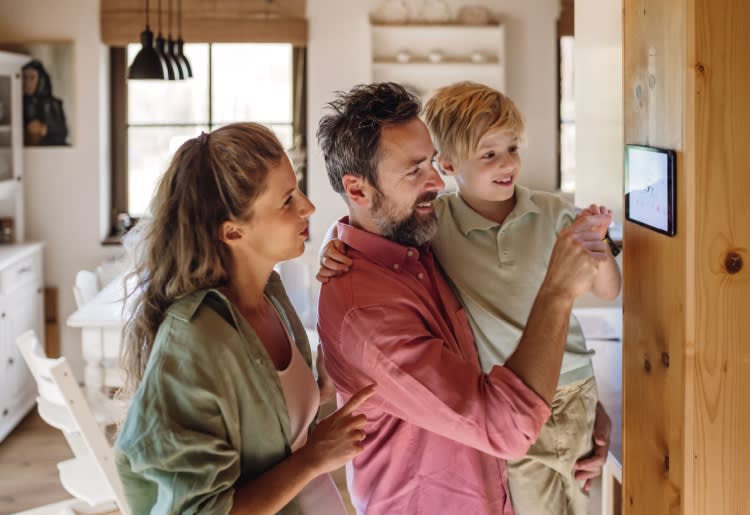Who Should Consider Getting a Home Security System?
How Do Home Security Systems Work?
What Are Common Components of a Security System?
Home security systems work using a combination of sensors, cameras, and alarms to detect and respond to potential intruders. Common components include the following:
Control Panel
The central control panel communicates with various sensors and cameras throughout your home. You can use it to arm and disarm the system, and depending on what type you have, you may also be able to monitor your home in real time via a mobile app or web portal.
Video Surveillance
Video surveillance, also known as closed-circuit television (CCTV), uses cameras to monitor specific areas. The cameras record video footage, which you can also view in real-time. Video surveillance significantly reduces crime in residential areas, and can help identify potential suspects in the event of a crime.
Burglar Alarms
When a sensor is triggered, a siren goes off, alerting you and the neighborhood of a potential intrusion. Burglar alarms can be installed as a standalone system or included in a more comprehensive home security package.
Motion Sensors
When a sensor detects motion or another type of spatial disturbance, it sends a signal to the control panel, triggering an alarm and/or sending an alert to your connected smartphone.
Contact Sensors
A contact sensor, also known as a door/window sensor or a magnetic sensor, detects when a door, window, or other entry point opens or closes. A magnet is attached to the door or window and an entry sensor is placed on the frame. When someone opens the door or window, the magnet moves away from the sensor, causing it to trigger the alarm.
Glass-Break Sensors
These are sound detectors that pick up when a window or glass door breaks, which could indicate a potential intruder. They can be wired or wireless. Some models come with adjustable sensitivity levels or the ability to differentiate between the sound of breaking glass and other loud noises.
Yard Signs and Stickers
When burglars know that your house has a security system in place, they are far less likely to break in and will move on to a different target. Most companies provide yard signs and stickers that indicate your house is surveilled and protected by security. The stickers are often placed on various doors and windows around the home, while the yard sign is placed out front.
Environmental Sensors
Environmental sensors monitor different conditions in a home or building. Common types of environmental sensors check for:
- The presence of fire and smoke
- Dangerous levels of carbon monoxide
- Extreme temperature fluctuations
- Humidity levels
- Water leaks
- Air quality
Choosing the Right Home Security System
The following are steps you should take when choosing a home security system:
1. Assess Your Security Requirements
Evaluate your home or property and look for where a burglar might try to enter your home. You should also check for areas that need extra protection, such as your front and back doors, garage, backyard, and windows.
2. Determine Your Budget
Weigh up how much you're willing to spend on the system against the value of your assets. Then, decide whether you prefer a larger upfront cost with lower monthly fees, or vice versa.
3. Conduct Thorough Research
Before choosing a home security system, do your research and compare different companies in terms of available devices, security features, and past service reliability based on user reviews.
4. Decide Between Professional or DIY Installation and Monitoring
Consider whether you have the willingness and technical expertise to install and/or monitor a DIY home security system. If not, opt for a company or package that includes professional installation and 24/7 monitoring.
5. Consult With a Professional
If you're hiring a professional installation company, you'll likely meet with a representative to review your needs and get a quote. Many DIY companies also have customer service representatives available if you need similar assistance.
How Much Does a Reliable Security System Cost?
On average, upfront home security system costs can be as little as $200 for self-installed equipment to over $1,000 for a professionally installed and monitored system. Monitoring costs usually range between $20 and $50, depending on whether the system is professionally or self-monitored.
Indoor camera systems cost around $100 each, whereas outdoor cameras are about $200. Sensors for doors and windows are usually $30 each, and environmental sensors for smoke and carbon monoxide are priced at about $100 on average.
Systems with only basic sensor types are typically cheaper than those with smart home integrations and more advanced devices (like the best home security cameras and video doorbells).
Exploring Different Types of Home Security Systems
There are several types of home security systems. Some of the most common are:
Wired Systems
These are hardwired into your home's electrical system and typically require professional installation. They're more reliable than wireless systems but are often more expensive and difficult to install.
Wireless Systems
These systems use wireless technology (WiFi or cellular) to communicate with the different security components. They're easier to install than wired systems and usually less expensive but are less reliable in areas with poor signal strength.
Monitored Systems
These systems are often professionally installed home security kits and are connected to an external monitoring center. They offer greater peace of mind but are more expensive than unmonitored systems.
Unmonitored Systems
Unmonitored systems are more affordable than monitored ones but are less reliable—they require you to manually respond to alerts and alarms.
DIY Home Security Systems: A Practical Option
DIY systems like SimpliSafe and Cove are ideal if you only have basic security needs. They're usually the best home security systems for renters since they're designed to be easily installed and removed if necessary. You also save on the cost of a home security system by installing and monitoring it yourself, which is perfect if you have a tight budget.
However, DIY products may not offer the same level of security or reliability as professional ones. You need to ensure they're correctly installed and that all sensors and cameras are functioning properly. You also need to monitor the system yourself and respond to any alerts or alarms. This can be time-consuming and may not be feasible if you have a busy schedule or limited technical knowledge.
Professional Home Security Systems: Enhanced Protection
Professional systems like those from Brinks Home Security and Vector Security are the best home security systems for homeowners—they cater to those with unique or long-term security needs and/or highly valuable items. They also provide 24/7 monitoring and respond to alerts of an intrusion or other security breach.
These systems are installed and maintained by trained professionals who have years of experience and will ensure your home is protected in the best way possible. These experts also provide advice on the best system configuration for you and confirm everything is set up correctly.
Useful Tips for Home Security Systems
You can ensure that your home security system provides the level of protection you need by following these tips:
- Choose the right package: Home security systems come in many different configurations, so choose one that meets your specific needs. Consider factors such as the size of your home, the level of security you require, and your budget.
- Install the system correctly: To ensure your home security system functions properly, correct installation is key. If you don't want to install a home security system yourself or feel comfortable doing so, consider hiring a professional.
- Test your devices: Whether you choose a monitored or unmonitored system, test your security system regularly to ensure that all devices are in working order. This will help you identify any issues before they become a problem.
- Monitor the system regularly: If you have a self-monitored system, you should monitor your surveillance footage often and quickly respond to alerts or alarms. This will also help you see if someone is casing your house for a future burglary.
- Implement additional security measures: Consider installing deadbolts on all exterior doors, using motion-sensor lights, and trimming back any shrubs or trees that could provide cover for burglars.
Additional Home Security Systems We've Reviewed
In addition to the providers reviewed above, we also reviewed the following companies using the same methodology:
- Guardian Protection - Best mobile app with custom automations
- CenturyLink - Best for packaged security with home communications
- Protect America - Best DIY system without upfront costs
Interesting Articles You Might Find Helpful :
Protect Your Home Effectively
Regardless of size, type, or location, any home will benefit from a security system, especially by deterring thieves from even trying to enter. With the right home security system in place, you can enjoy greater peace of mind and protect your home and loved ones from potential threats.
ADT (the parent company of systems like ADT Self Setup) offers the best professional and DIY monitoring and has a reputation for reliable customer service. Ultimately, the best home security system depends on your budget, as well as monitoring and equipment needs.
At $9.99 a month, Scout Alarm's monitoring cost is significantly lower than the industry average of around $30.
Cove's wireless systems don't require complicated wall drilling or mounting. You can easily mount the door sensors and motion detectors with the peel-and-stick adhesive.
SimpliSafe is the best home security system without a monthly fee, although this only applies if you don’t use their video cameras. If you want cameras included, then pricing starts at 33¢ per day.
Yes, it's definitely worth getting a home security system to protect yourself and your possessions. They deter burglars, alert you when intruders are on your premises, and serve as evidence in the event of a break-in.
ADT is a more comprehensive security system with professional installation and a wide range of equipment options. SimpliSafe, on the other hand, is a more affordable system that you can set up yourself.
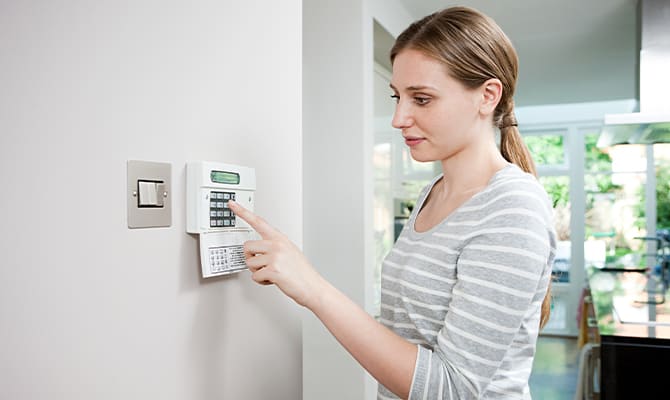










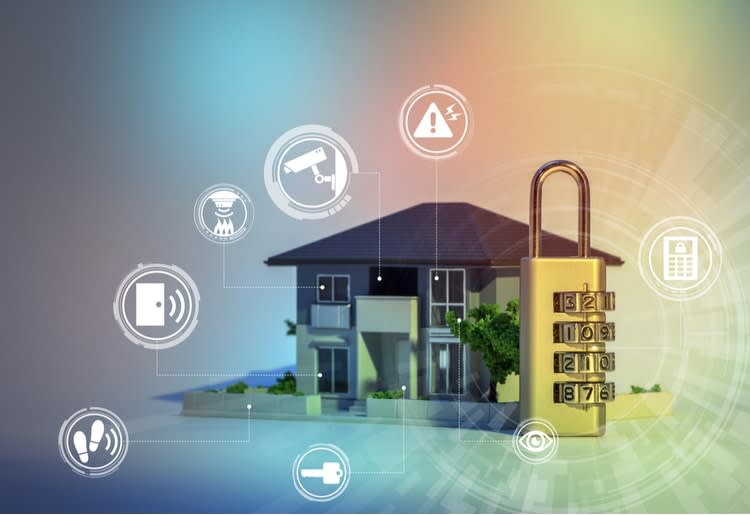

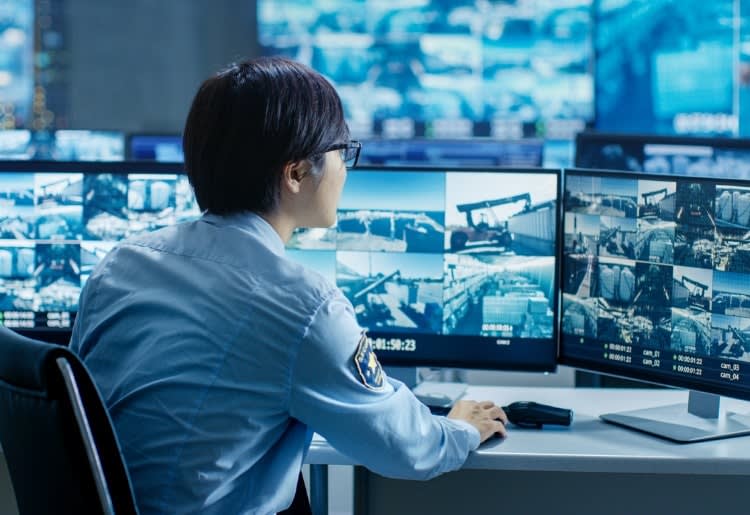

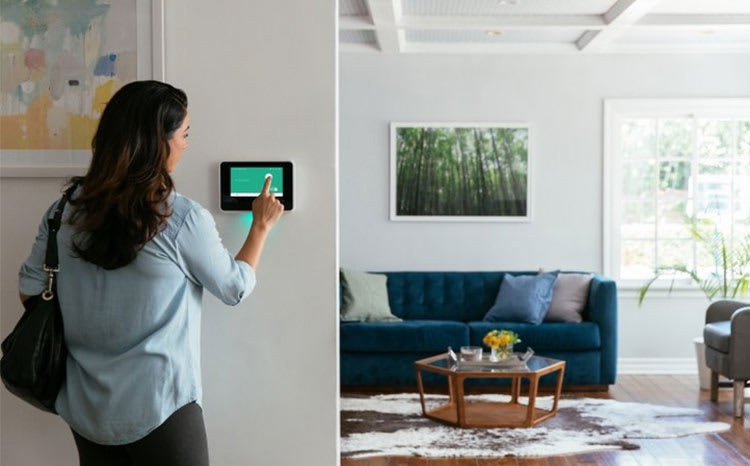

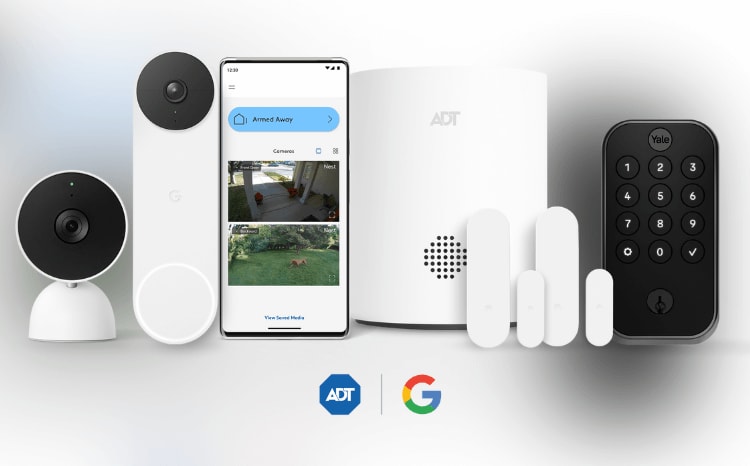

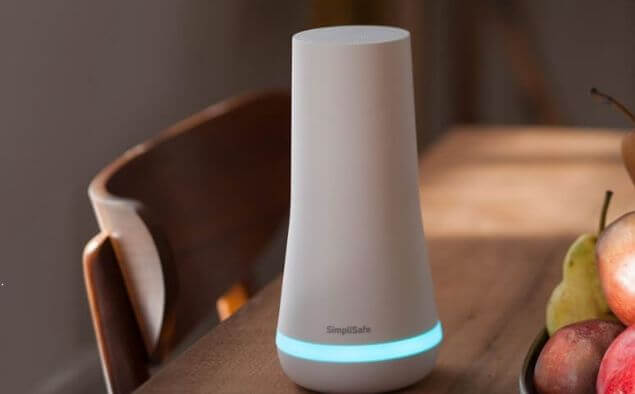

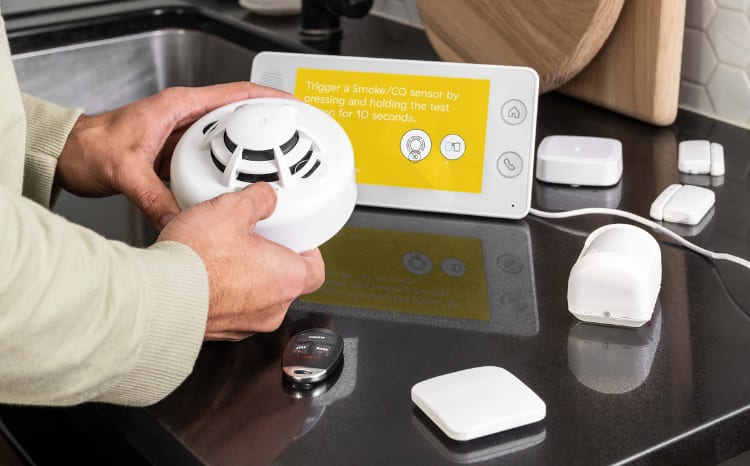

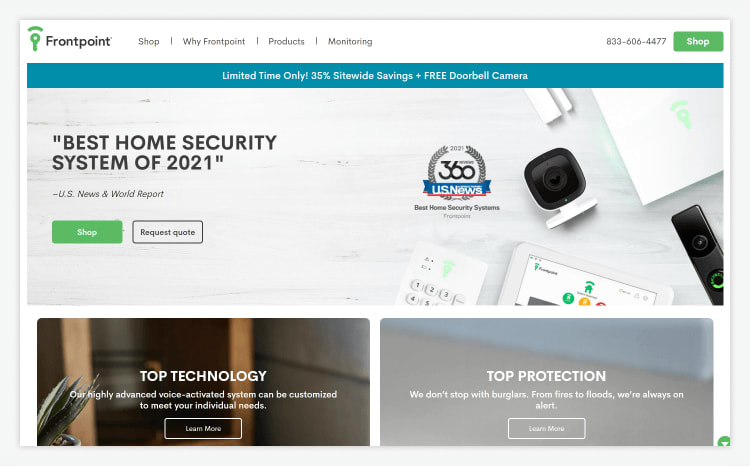



.20200424090351.png)





